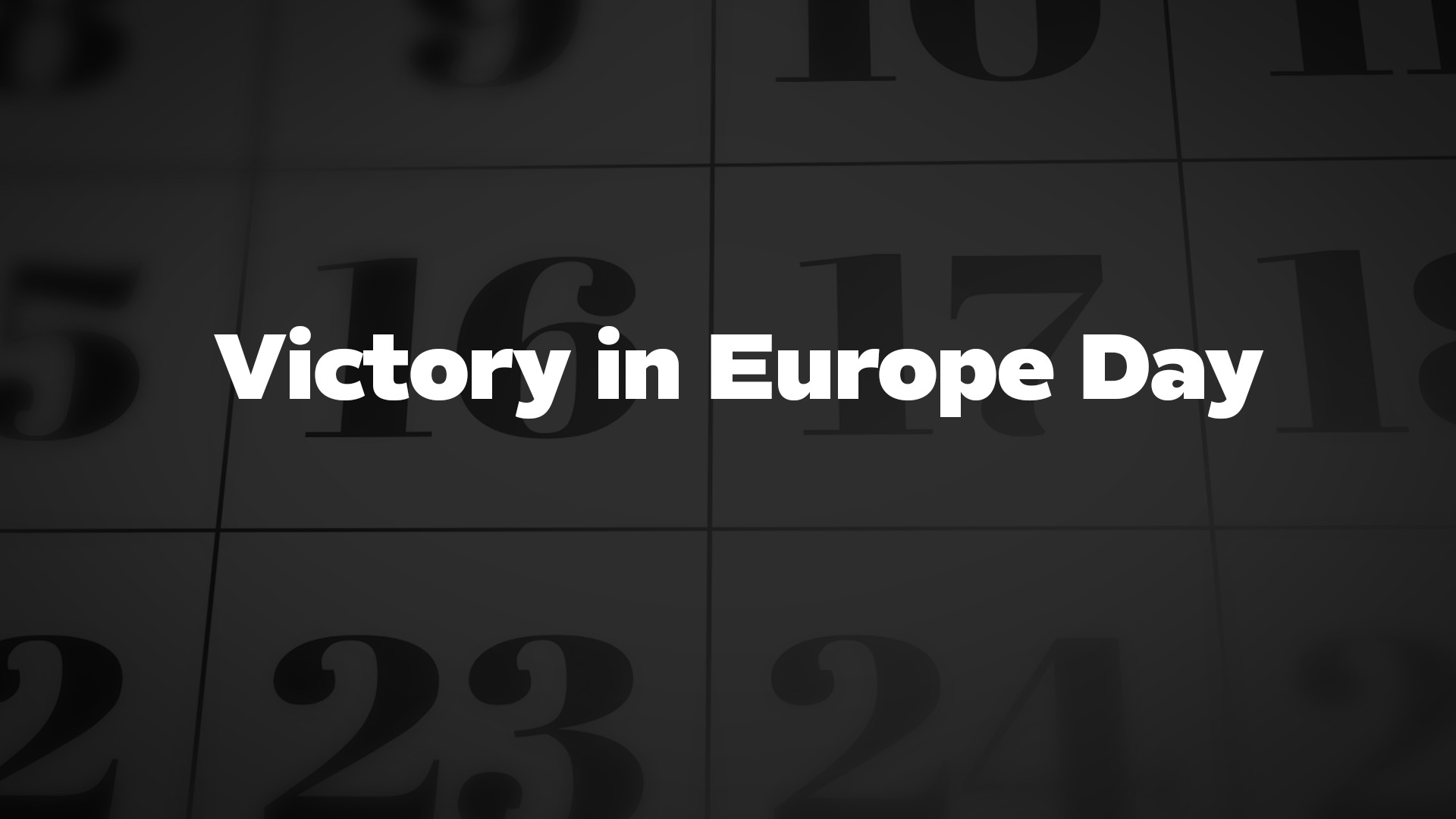Victory in Europe Day, also known as VE Day, is celebrated on May 8th each year and marks the day in 1945 when Nazi Germany surrendered to the Allied forces, leading to the end of World War II in Europe.
#HASHTAGS
#VictoryInEuropeDay
Victory In Europe Day is celebrated annually on May 8th.
| Year | Date | Day |
|---|---|---|
| 2022 | May 8 | Sunday |
| 2023 | May 8 | Monday |
| 2024 | May 8 | Wednesday |
| 2025 | May 8 | Thursday |
| 2026 | May 8 | Friday |
| 2027 | May 8 | Saturday |
| 2028 | May 8 | Monday |
| 2029 | May 8 | Tuesday |
| 2030 | May 8 | Wednesday |
| 2031 | May 8 | Thursday |
| 2032 | May 8 | Saturday |
| 2033 | May 8 | Sunday |
| 2034 | May 8 | Monday |
| 2035 | May 8 | Tuesday |
